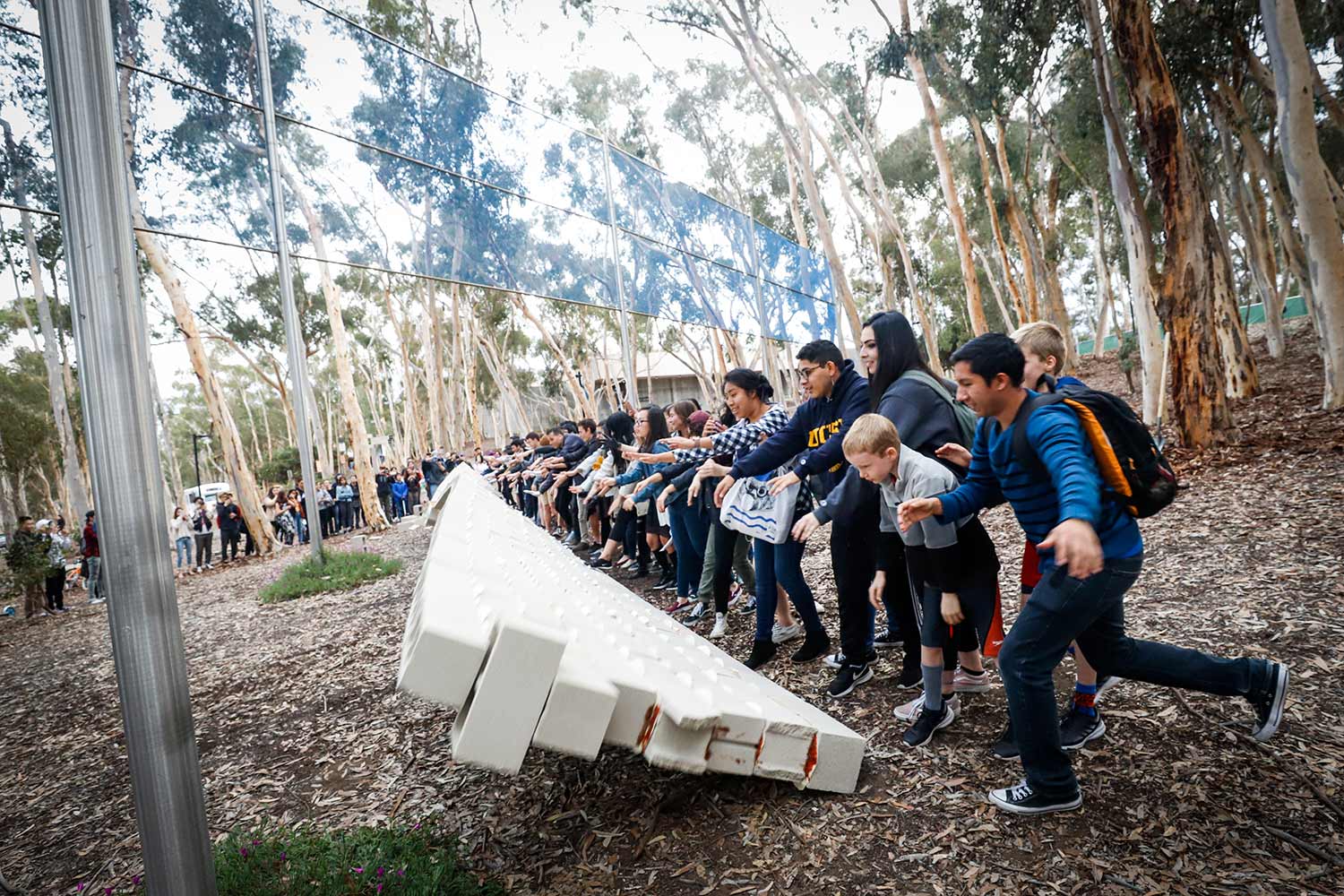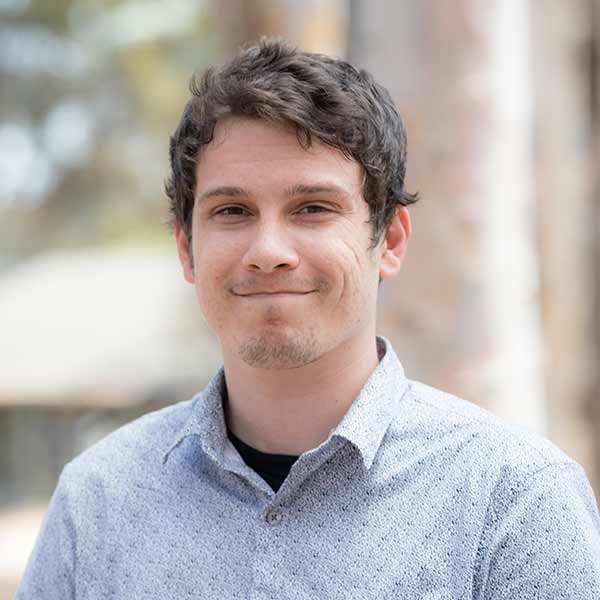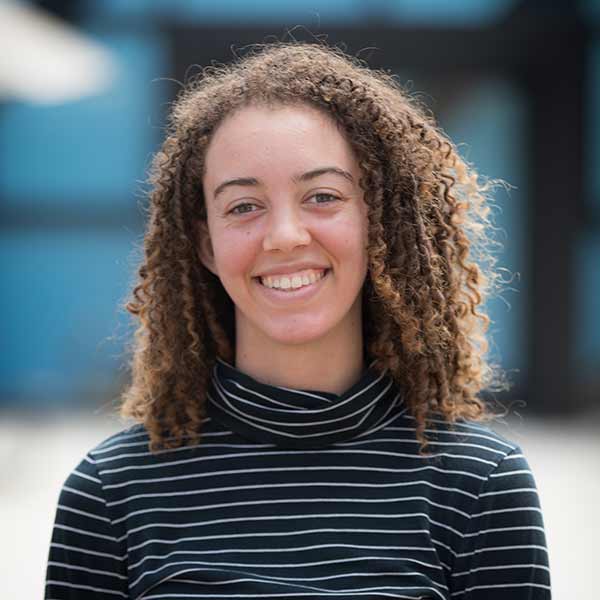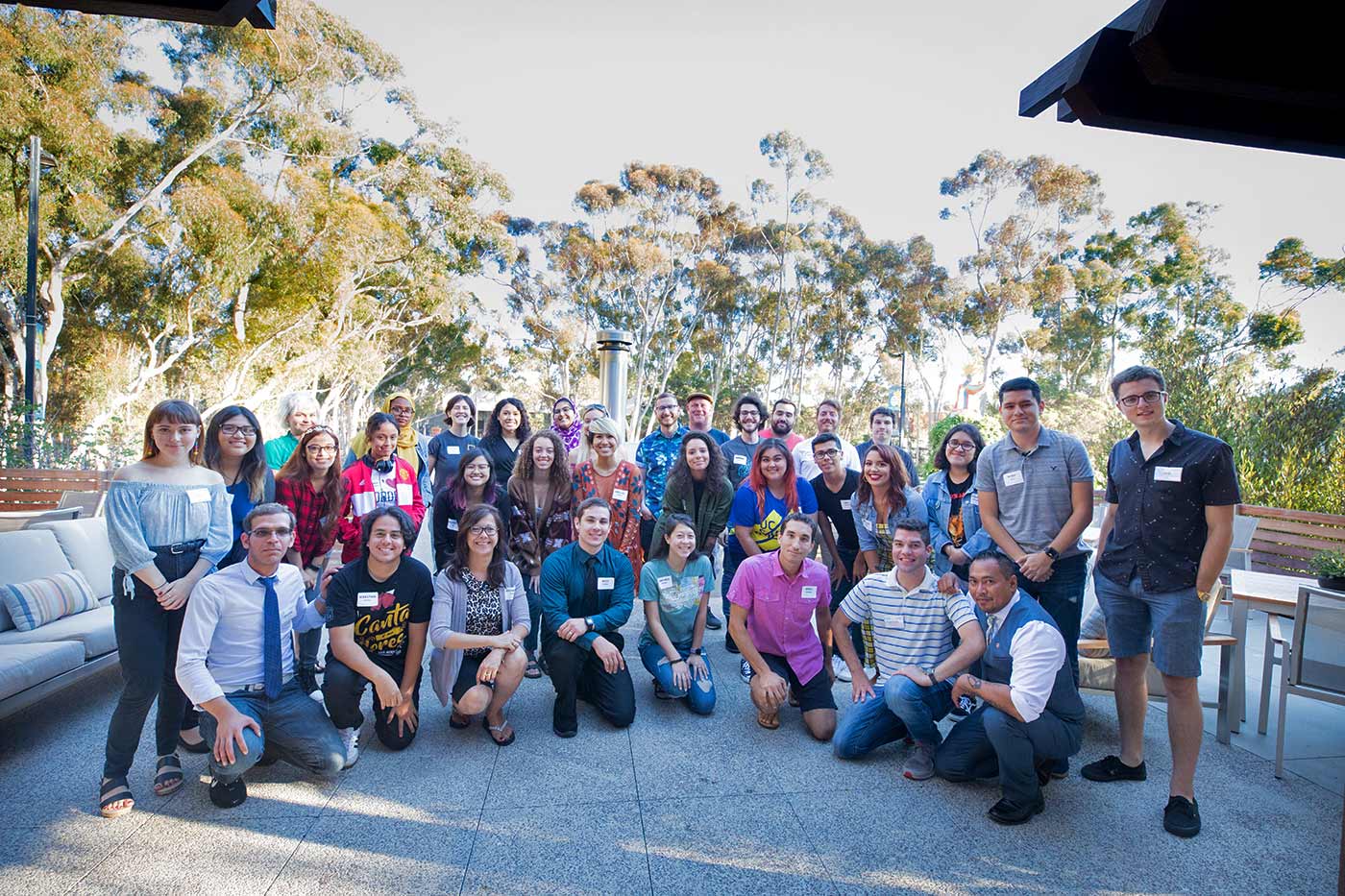By:
- Anthony King
Published Date
By:
- Anthony King
Share This:

Organized by the PATH program, students and community members created “Sweetwall,” an arts activation event on campus. Photos by Farshid Bazmandegan / Division of Arts and Humanities
Breaking Down Barriers to Success
Arts and Humanities transfer students shine in campus-wide McNair Program
Three transfer students in the Division of Arts and Humanities have been selected as campus McNair scholars, a national program that supports first-generation students to help break down barriers in preparation for graduate school.

Michael Alvarez
Kelly Clemen and Michael Alvarez each transferred to UC San Diego as part of the division’s PATH program, Preparing Accomplished Transfers to the Humanities. The third PATH student chosen for the McNair Program—30 students are selected annually on a competitive basis—took an alternate opportunity instead.
“It’s particularly important that our transfer students receive the support they need when arriving to UC San Diego in order for them to understand the full scope of possibilities that will help them succeed,” said Division of Arts and Humanities dean Cristina Della Coletta. “These tools, including PATH, the McNair Program and many others, help to ensure they thrive while students, as well as after graduation.”
As a McNair scholar, the undergraduates work two quarters with faculty mentors on a research project in their field, plus a paid, eight-week internship over the summer. Training includes how to write and present a scholarly research paper, conducting library research skills, preparation for graduate admissions testing, and guidance on applying to graduate schools and obtaining fellowships. The students are required to write a research proposal and present at a minimum of two research conferences.
The McNair Program is one of the Federal TRIO Programs, funded by a grant from the U.S. Department of Education. The objective is to provide lower income, first-generation college students, and students from groups underrepresented in graduate education with effective preparation for doctoral study. UC San Diego is one of the original institutions to participate in the McNair Program, now part of campus’ Academic Enrichment Programs, or AEP.
Alvarez is working with Department of Philosophy professor Samuel Rickless. After completing “Meaning in Life: An Analytic Study” by Thaddeus Metz, Alvarez and Rickless outlined a research question that Metz doesn’t specifically address through the work, ultimately attempting to discover the “sufficient conditions” for a human’s life to be meaningful.
“The McNair Program has already helped me in my studies,” Alvarez said, “and the guidance and feedback I've received from my faculty mentor has given me insight into conducting philosophical research. One thing I think is pretty important in general is being able to have a sense of what ideas are worth pursuing. I’m not saying I know for sure yet, but I definitely have a better sense than I did at the start of the program.”

Kelly Clemen
A transfer student from San Diego City College who is now majoring in philosophy, Alvarez will present portions of the research about achieving meaningfulness in life at the May 18 AEP Undergraduate Research Conference.
Clemen, who transferred from San Diego Miramar College, is working with Department of Ethnic Studies professor Wang Yang. The research project they are undertaking is about the history of the Kumeyaay Nation and their relationship to the land and campus. Clemen is serving as the documentarian for art being installed at Muir College, created by Kumeyaay artist Johnny Bear Contreras.
Clemen said she meets regularly with Contreras, and will interview the group of students who helped start the project. She recognized the extra involvement and support from faculty members as particularly positive about the program, and is looking forward to sharing her research at both a forthcoming Faculty Mentor Program Conference, and another conference over the summer.
The PATH program is a collaborative effort between the UC San Diego Division of Arts and Humanities and the San Diego Community College District, made possible by a $2.59 million grant from the Andrew W. Mellon Foundation that seeks to educate a new generation of leaders who will reshape the value and meaning of the humanities in the 21st century.
A literature major, Clemen said she was worried about adjusting to the quarter system at UC San Diego and managing time—between priorities of work, school and life—was most difficult in transitioning to what she called a “huge” campus. The PATH program and its Summer Academy, however, helped.
“The community it builds for arts and humanities students is incredible,” she said. “I fully grasp the resources available to students on campus, and I have a community of peers that I can relate to and see around campus. I’ve been presented so many incredible opportunities.”
During the five-week Summer Academy prior to their first quarter at UC San Diego, PATH students take two, four-credit courses, participate in workshops, and receive transfer and career guidance. Following the academy, students receive special opportunities for on-campus employment and internships. The entire program is free for students.

Division of Arts and Humanities PATH program transfer students at the second Summer Academy.
Now in its third year, the PATH program has supported 48 students through two Summer Academy sessions, with a third planned for 2019. Students are exposed to resources on campus and learn about opportunities for their time at UC San Diego: including mentorships, internships and scholarships. Some students become peer mentors themselves, while others travel to national conferences and participate in arts and humanities activation on campus, like the 2018 “Sweetwall” recreation.
“The PATH program has been a tremendous success, and we’ve been able to really develop a systemic approach to the recruitment and retention of humanities transfer students,” Della Coletta said. “Seeing our students thrive in the humanities emphasizes the foundational, transferable and enduring skills for all individuals.”
Share This:
You May Also Like
Stay in the Know
Keep up with all the latest from UC San Diego. Subscribe to the newsletter today.



